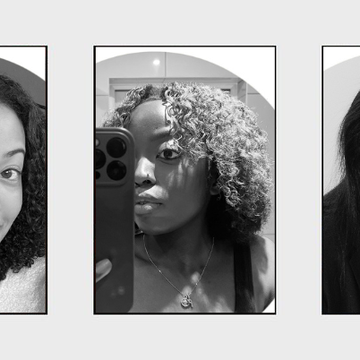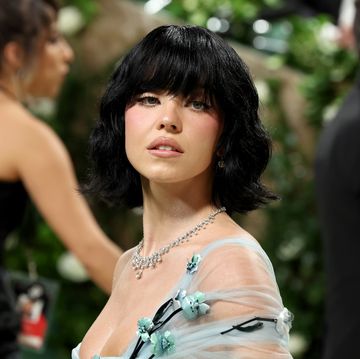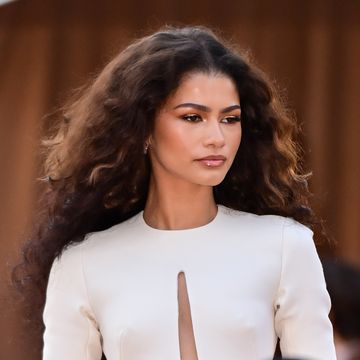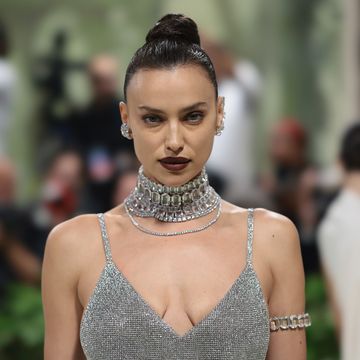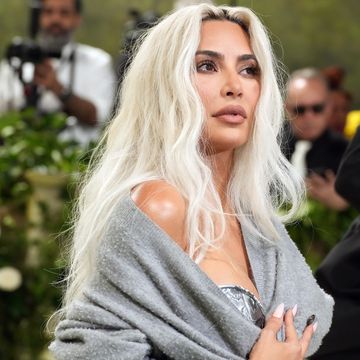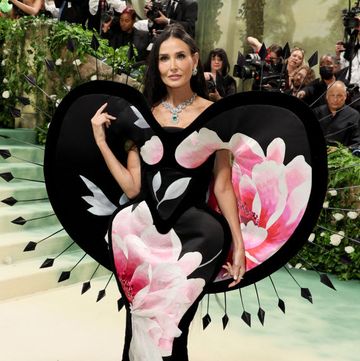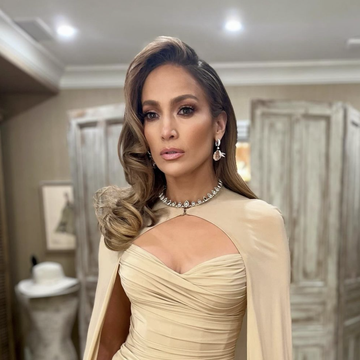Back in 2014, still an ingenue in the beauty industry, I decided to stop relaxing my Afro textured hair. My decision wasn't about going 'natural', it was about choosing to stop beating my coils into permanently straight lengths using the harshest chemicals available to hairdressers. I still wanted the option to straighten my hair and play with styles like braids and twists, but I also wanted to learn what my hair actually feels like as it sprouts from my scalp. I wanted to get to grips with my type 4 hair.
You know who didn’t want to? Many, many hairdressers. As a budding beauty journalist, I would be invited to review blow-dry bars or new salon services only to be met with ‘We're just checking there’s a specialist available for you.’ I’d never felt less special in my life. In fact, I felt like a nuisance. Afro understanding had always been few and far between in mainstream salons, but it was only then that it hit me just how stark the gap in hairdressing knowledge really was.
In the past, if anyone addressed this gap, the same argument would be repeatedly rolled out: in an industry where Black hair is already so overlooked and underrepresented, shouldn’t the work go to a Black stylist anyway? As a Black beauty journalist, I shudder at the thought of my Blackness being the only thing that I offer to a story or segment. My knowledge is varied and reaches far beyond my own hair texture and skin type because, as a minority in a predominantly white industry and country, I have had to know about them. Any Black hairdresser I've encountered is entirely capable of working with every hair texture, but the same cannot be said for the rest of the industry, and this is the issue at its core.
A harsh light was finally shone on the issue in response to the BLM rising of summer 2020. 'In the last two years Avlon has seen a significant increase in enquiries from non-sector specialists regarding education around Afro and textured hair, and I think societal awareness of movements such as Black Lives Matter has been a key driver for this,' says Jacqui McIntosh, European Education Director at Avlon, a leading textured haircare brand. As conversations grew louder, it became obvious that many non-Black hairdressers had no understanding or experience in styling or caring for Afro hair whatsoever. A problem that's unsurprising when you consider the fact that until 2021 there was no requirement to learn about Afro textured hair as part of any hairdressing training, diploma or NVQ.
Aiming to change this is VTCT, a vocational qualification body that requires education around Black hair and skin to form part of their core curriculum. In turn, the future is looking brighter for new apprentices coming up in the industry. In the UK a petition was created to amend the Equalities Act to include hair-based discrimination (much like the Crown Act in the US). Elsewhere the Halo Collective launched the Halo Code, which is doing amazing work altering the conversation around hair discrimination within schools and workspaces.
'There is certainly a new generation of stylists coming through that have left college with the skills and knowledge to cater to the Afro hair sector and this is great to see,' notes McIntosh. But what about the hairdressers long-qualified and at the height of their careers that have never diversified? Yes, your trainees will be able to do my hair in a few months when they finish their courses, but can you do my hair right now? Not everyone will be a braiding expert or a silk press perfectionist, but if I sit in front of you with my natural coils in all their glory and you break out into a cold sweat, are you as great of a hairdresser as you’re purported to be? This isn’t like being a multi-disciplinary artist, this is like being a noted ceramist and only knowing how to work with one type of clay.
Thankfully, it seems salon owners are more invested in moulding their team’s skills than ever before, with hairdressers like Blue Tit addressing their gaps in knowledge with rigorous training across their entire salon group. 'Once we committed to offering Afro and textured hair services, we made it compulsory for all of our stylists to complete the training programme set up by our Afro & Textured hair educators at our Academy,' says Matt Gebbie, Director at Blue Tit salons. 'All stylists at Blue Tit get an introduction into caring for Afro & Textured Hair, acquire knowledge on the different hair types and techniques required, and we also ensure a constant refresher programme for the existing stylists to make sure their skills are always up to date.'
A step that I, and a lot of Black women, will have to overcome is the belief that European salon spaces cannot cater for our hair type at a time when, finally, many of them are addressing their gap in knowledge head-on. 'The goal is to have a fully functioning salon that is equipped to be able to work with anyone who walks through the door and to make all staff and clients feel comfortable,' says Pashcan'el Mitchell, Afro and Textured Hair Educator at Blue Tit salon.
The key word here is 'comfortable'. Recently a friend told me that she dresses up to go to a west London European salon to get her Afro hair blow-dried because she wants to look 'like she belongs there'. The most depressing part was that I could completely relate. We've been conditioned to believe that we don’t fit within these spaces, but things are starting to change. Recently, I visited a salon that I had long assumed could not cater to my hair type. I saw clients and staff from a variety of ethnicities with no segregation in sight. Without the usual 'special' attention assigned to me, I sipped my tea, I unclenched, I felt at ease. 'I hope that as more salons diversify their clientele, they'll also diversify their teams,' says Mitchell. 'It's just as important that your team represents what the future looks like and what we all should be aspiring to build.'
I opened the notes app on my phone to add to the roster of beauty spaces I felt comfortable in as a Black woman. The list is growing. This might just be the beginning of salons broadening their Afro hairdressing services, but if this is the way it's heading, the industry is in safe hands.








